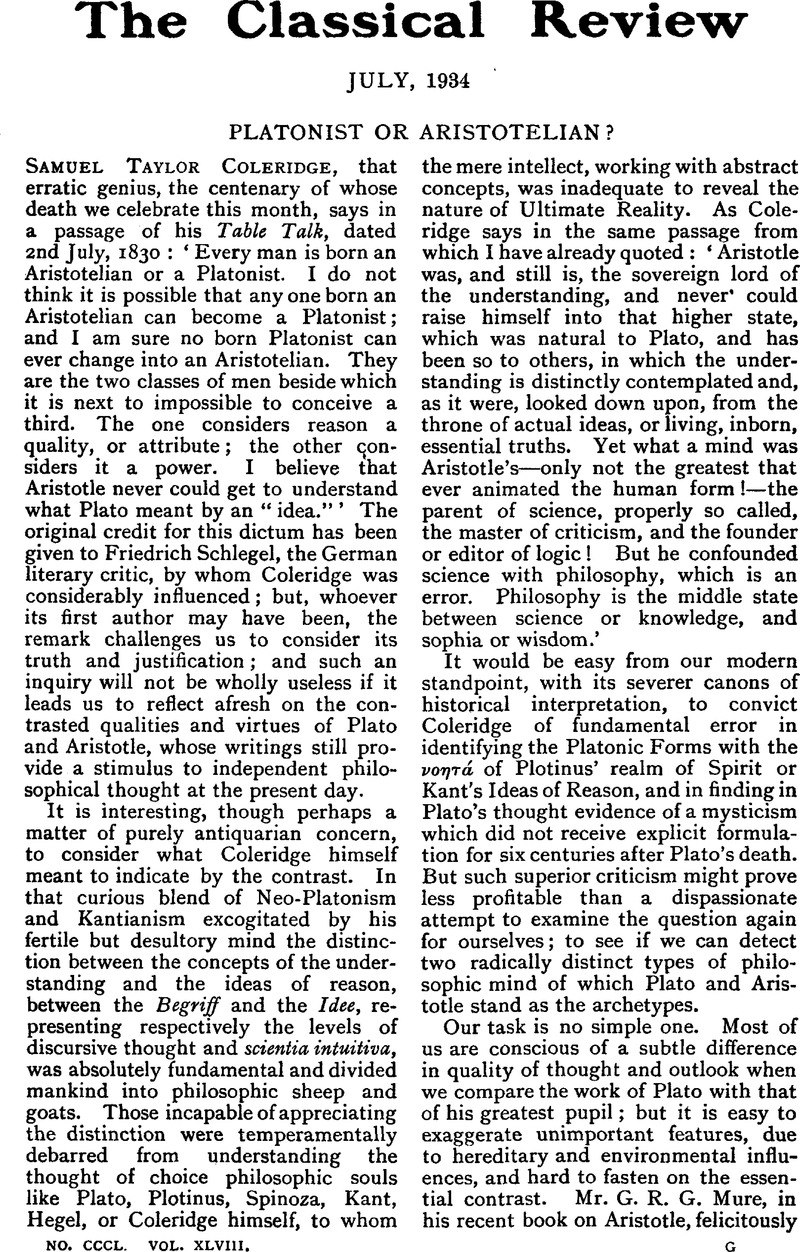Article contents
Platonist or Aristotelian?
Published online by Cambridge University Press: 27 October 2009
Abstract

- Type
- Review Article
- Information
- Copyright
- Copyright © The Classical Association 1934
References
page 100 note 1 Cic. Acad. II. 38.119.
page 100 note 2 Legacy of Greece, p. 86.
page 100 note 3 Rule and End in Morals, ad init.
page 101 note 1 A Defence of Poetry. Essays and Letters.
page 101 note 2 P. 37.
page 101 note 3 Hours in a Library.
page 102 note 1 Coleridge as a Philosopher, p. 28.
page 102 note 2 Cf. Pope: ‘True wit is nature to advantage dressed; What oft was thought, but ne'er so well expressed.’
page 103 note 1 Timaeus 90C: φυτν ο ὐκ ἔγγειον λλ' οὐρνιον.
page 103 note 2 Coleridge as a Philosopher, p. 28.
page 103 note 3 See especially the Politics, Bks. IV to VI.
page 104 note 1 Cf. Eth. Nic. II 6, 1107a 6–8: ‘In respect of its substance and the definition which states its essence virtue is a mean, with regard to what is best and right an extreme.’
page 104 note 2 Adventures of Ideas, pp. 187–8.
page 104 note 3 Ibid., p. 65.
page 104 note 4 Epistle VII 341c.
page 105 note 1 Republic VI 486a. … ![]() .
.
- 2
- Cited by


